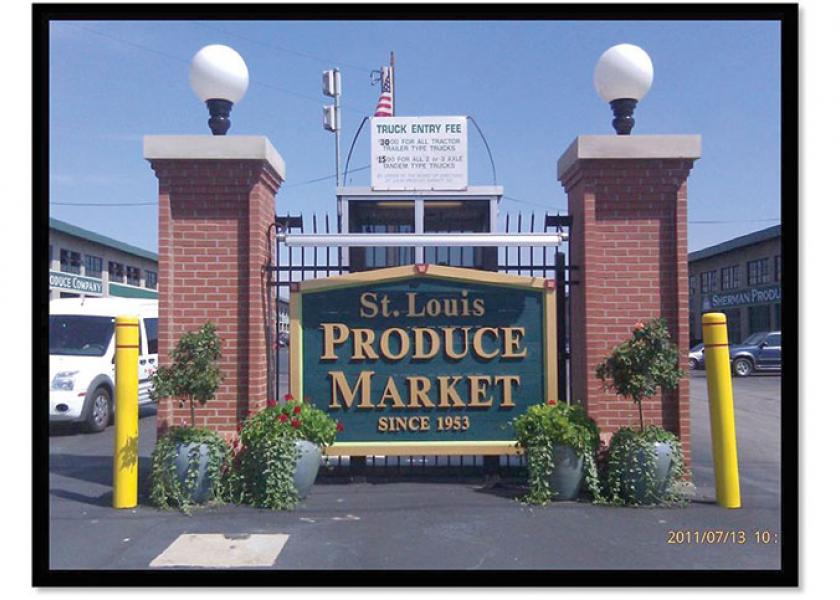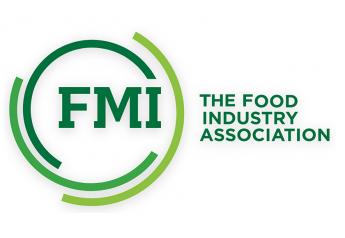St. Louis deals with COVID-19

Business generally remains strong in the St. Louis, Mo., market, with the COVID-19 pandemic having varying effects on sales at area produce distributors.
“If you sell to restaurants, it’s been a bad thing,” said Joe Sanders, owner of Midstate Produce Co. Inc. on the St. Louis Produce Market. “If you sell to other distributors, or you sell to grocery stores, then it’s good.”
Sales have been “good enough” at Midstate, he said.
“We sell to restaurants, so we’ve definitely been affected by the pandemic, but we’ve adapted.”
The company has looked to additional retailers and other wholesalers for buyers for its onions, avocados, peppers, iceberg, green, red, yellow and orange bell peppers, romaine, potatoes, celery and other items.
“We try to go local when it’s available,” he said, sourcing homegrown items like tomatoes, cucumbers and zucchini, yellow and hard squash.
Ordinarily, 70% of the company’s business is with foodservice customers.
“We took a big hit early on,” he said.
Restrictions on indoor dining have had a negative effect on restaurants and people who sell to restaurants, he said.
On the other hand, “I think retail is killing it,” he said. “I don’t think they’re doing bad at all.”
More people are eating at home and going to the supermarket or having their food delivered by Instacart or taking advantage of curbside pickup, Sanders said.
Restaurants also are offering curbside pickup or delivery.
Springfield, Ill.-based Tom Lange Co. works with foodservice, retail, institutions and wholesale customers, said Jeff Moore, vice president of sales, who works out of the St. Louis location.
The company experienced what has become the usual impact of the coronavirus pandemic on produce distributors.
“Right out of the gate, we saw things drop off drastically on the foodservice side,” he said.
“It was very concerning,” Moore said. “We want the best for our customers, and we want them to succeed.”
The effect on retail was the opposite.
“We saw a huge uptick on the retail and the wholesale side from folks eating at home.” he said.
There was a lot of volatility throughout the industry early during the pandemic, especially regarding transportation and slowdowns at certain warehouses, he said.
“Retailers were inundated with major volume,” he said. “The pipeline was emptied out.”
But the company’s logistics operation performed as expected, he said.
“That’s what we do, we manage chaos,” Moore said. “We take care of people’s headaches so they can focus on what they do best.”
About 70% of the business at VMP Produce Co. on the St. Louis Produce Market was with foodservice customers, said owner Vince Pupillo.
Tomatoes, cucumbers, potatoes and peppers are some of the company’s main products.
The coronavirus pandemic “slowed us down a lot,” he said, but he added that sales are coming back slowly.
He said it would nice to even get restaurant capacity back to 50%.
Meanwhile, VMP Produce, like other distributors, was taking COVID-19 precautions, such as requiring face masks and social distancing.
“We haven’t had a single case (of COVID-19) yet,” he said.
St. Louis-based SunFarm Food Service sees an uptick in a number of fall items at this time of year, said president John Pollaci.
“People like to get into fall décor,” he said.
The company sells autumn items like gourds, cornstalks, mini pumpkins and pumpkins for carving and even hay bales for customers such as country clubs and schools that want fall decorations.
SunFarm also helps chefs change over to their fall menus with items like hard squash and root vegetables.
“Fall is a good season for retailers,” Moore said.
Some locally grown summer items still are around, new fall apple varieties start to come in, and there are lots of promotions and pop-up sales, he said.
If schools don’t reopen, supermarkets will step up to replace school meals, he said.
“I think the demand probably will continue to be strong.”
Related Content:
St. Louis foodservice operators struggle







